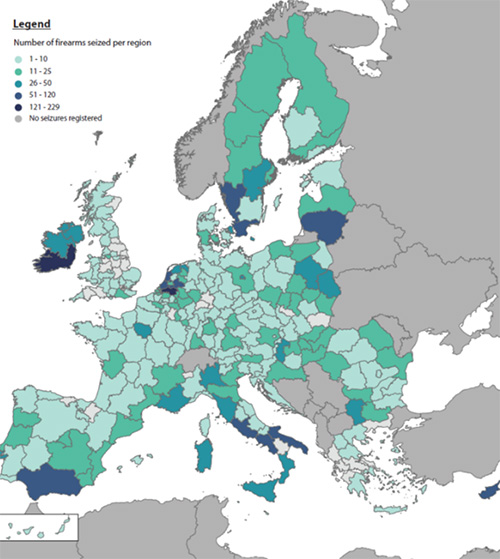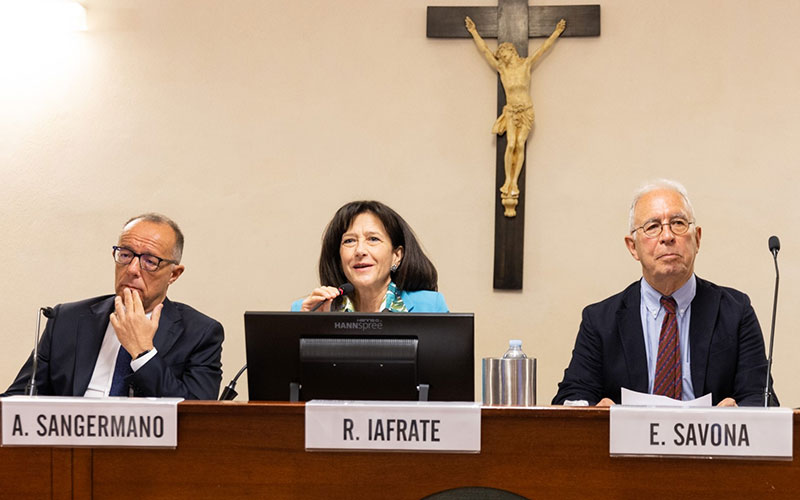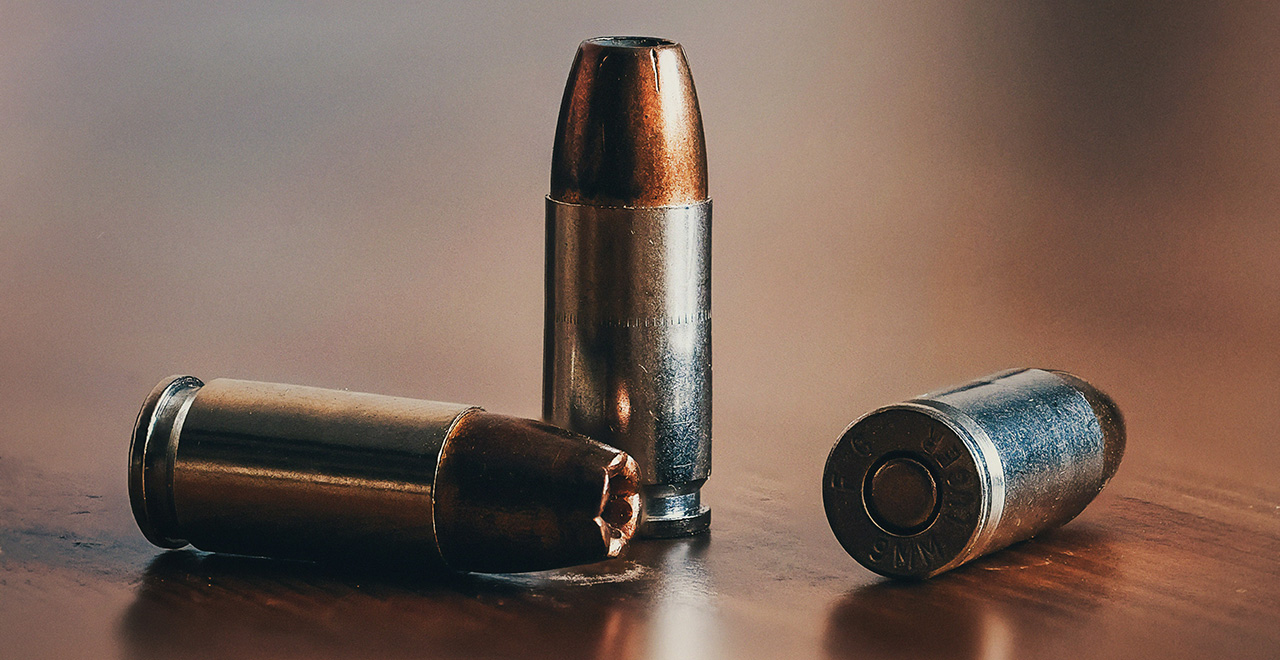Transcrime – the Inter-university Research Centre in Transnational Crime Joint Research Centre on Transnational Crime of Università Cattolica del Sacro Cuore has coordinated two EU-funded research projects on the illicit trafficking in firearms (ITF), i.e. Project FIRE and Project ECOFIT.
The projects have underlined that ITF is a serious crime that can negatively impact on private citizens’ safety. Indeed, firearms are very dangerous goods easily useable to commit crimes (from domestic violence to terrorist attacks) and to feed civil wars in vulnerable territories. Being durable goods, they can stay on the illicit market for many years and be sold many times among end-users. In addition, legal firearms are often diverted into the illegal market following leakage from factories or surplus stocks, thefts from stockpiles, dealers, individual owners, or conversion into illicit firearms. All these features make the prevention and the fight against ITF very challenging.
In the last years, the European Union has taken many initiatives to prevent ITF and has reinforced the firearms legislation. Also, Europol has consistently named the fight against ITF among the priorities in the EMPACT cycles (European Multidisciplinary Platform Against Criminal Threats). Despite this, many challenges persist and new ones are emerging. In particular, the national legal frameworks and definitions continue to be different across countries and there is a lack of communication and coordination between authorities at national and international level. The growing use of both the Dark web and fast parcel and postal service to traffic firearms, the technological improvements in 3D printing, as well as the more sophisticated conversion techniques are making the prevention and the contrast still more complicated.
In addition, ITF has a global dimension and often a transnational nature. Project FIRE – Fighting illicit firearms trafficking routes and actors at European level (2014 - 2017) has demonstrated how all the EU countries are affected by the ITF. 19,246 illicit firearms were seized in the EU between 2010 and March 2015 according to the analysis of data collected in an automatic and systematized way from newspaper articles retrieved from an online news aggregator.
Number of firearms seized in the EU per region 2010-2015

These factors strengthen the need to identify and adopt more and more effective and efficient countermeasures. Project ECOFIT – Options for EnhanCing Operational instruments in the area of Firearms Trafficking (2019 - 2021) has exactly addressed this need. By surveying law enforcement agencies (LEAs) in charge of the firearms issue in all the EU countries, ECOFIT has underlined how five of the main operational instruments used in ITF investigations (i.e. mechanisms for data collection, mechanisms for data sharing, National Firearms Focal Points (NFPs), joint criminal investigations and controlled delivery procedures) are not equally implemented at national level. Each country has its own internal procedures and these international instruments are not fully exploited. For example, LEAs in EU countries collect different types of data on firearms, they use different formats and the sharing of information is not systematic. Still, not all countries have set up fully operational NFPs, they consider joint investigations rarely necessary and all of them are reluctant to use controlled deliveries for security reasons. These discrepancies jeopardize the effective international cooperation, which is essential to tackle ITF.
To fill these gaps, and to enhance the level of operational cooperation, some operational objectives have been defined. By applying the impact assessment methodology, specific policy options have been suggested to reach these policy objectives. The results show that both legislative and non-legislative actions are needed to improve mechanisms for data collection and data sharing. Legislative measures should, for example, introduce mandatory minimal requirements in relation to the data to be collected, while non-legislative ones should foresee training for LEAs officials to inform them about best practices regarding data collection and sharing procedures. In relation to NFPs, binding measures imposed via legislative action should be applied to establish NFP units with a standard array of tasks within all EU Member States.
These measures should be accompanied by non-legislative actions (e.g. training to enhance skills and competences, and provisions of guidelines) in order to make the work of NFP units more effective and to allow a more efficient cooperation with units in other countries. Conversely, improving the use of both joint criminal investigations and controlled delivery procedures is more difficult and often not necessary. The set-up procedures and requirements needed to perform these activities are perceived as clear and effective. They are often unexploited because it remains difficult to grasp the benefits they yield. Therefore, non-legislative measures, such as accurately educating officials in the advantages and drawbacks of these operational instruments, would promote their use.
All the suggested policy options strengthen the existing channels of cooperation and point out concrete initiatives to better tackle ITF in Europe. In particular, they enhance the intelligence picture on ITF dynamics by fostering collection and exchange of systematic and harmonized information to be used in strategic and operational actions. They also contribute to intensify the pressure on criminal markets by promoting an efficient coordination within and across countries.








